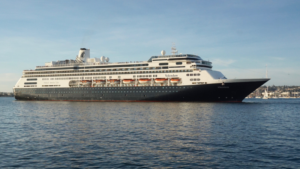
Canadians hoping plans for high-frequency rail between Toronto and Quebec City would move forward this year will instead see further delays — and the prospect of a federal election makes the timeline more uncertain than ever.
Unveiled nearly four years ago, the High-Frequency Rail (HFR) project has recently encountered a number of snags that could jeopardize its progress.
A number of reports indicate the shift in governmental leadership could derail the project altogether. Terry Johnson, head of the passenger advocacy group Transport Action Canada, emphasized that any new government would likely reassess initiatives from its predecessor, potentially altering or halting previous agreements.
The HFR was touted as a revolutionary transportation option, promising to cut travel time between Toronto and Montreal to around three hours—significantly quicker than the current five-and-a-half-hour journey by car. The proposed route would also offer stops in key Ontario cities such as Peterborough and Ottawa, as well as several locations in Quebec, including Laval and Trois-Rivières.
When the project was first announced in 2021, Ottawa estimated the cost could range from $6 billion to $12 billion. However, the megaproject has already encountered its share of complications. Recently, the federal government requested an extension on bids for the construction phase, which could delay the selection of a private partner beyond the anticipated initially deadline of late 2024.
Transport Minister Anita Anand reassured the public that the decision to extend the proposal timeline is a typical procedure, emphasizing that no contracts have yet been awarded.
The bidding process has not been without controversy. Concerns were raised by Transport Action Canada regarding Air Canada's role in the bidding process, suggesting it could lead to conflicts of interest and issues around competition.
Air Canada defended its involvement, asserting that it would facilitate better integration of the future rail network with existing airport hubs, thereby enhancing connectivity across the region. However, Transport Action Canada contends that the integration of airline services with public rail transport should be straightforward and does not necessitate Air Canada's participation in the HFR project.
The roots of the High-Frequency Rail initiative can be traced back to a proposal by VIA Rail Canada in 2015, which the government later adopted, committing $71 million to further study the project's feasibility in 2019. As anticipation builds around this transformative transport option, uncertainty looms, and stakeholders are left questioning whether the dream of a high-speed rail network linking Toronto and Quebec City will come to fruition.





